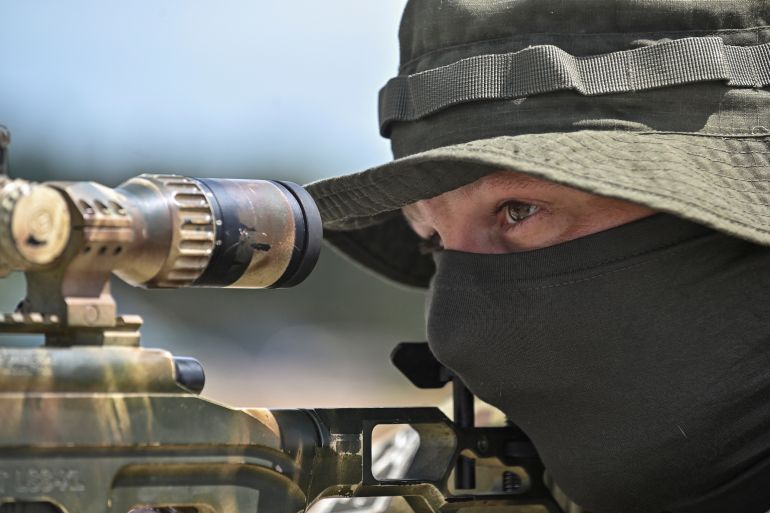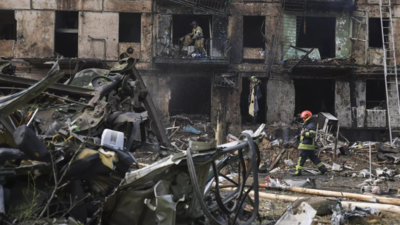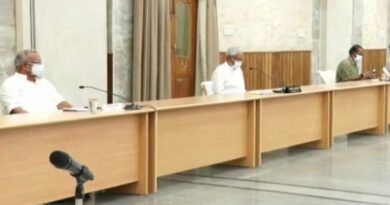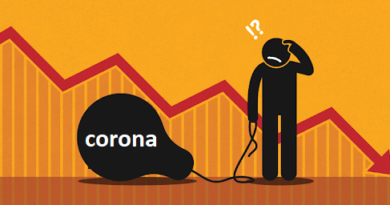The Ongoing Russia-Ukraine War: A Comprehensive Analysis
Introduction
It’s hard to believe that the conflict between Russia and Ukraine has been ongoing for over seven years. Tensions between the two countries date back to the days of the Soviet Union, but the current escalation began in 2014 when Russia annexed Crimea. Ukraine has been fighting against Russian-backed separatists in the eastern regions of the country ever since, with no signs of a peaceful resolution in sight. The key players involved in the conflict are Russia, Ukraine, and the separatist groups in eastern Ukraine. The United Nations, NATO, and the European Union have all played a role in trying to resolve the conflict, but their efforts have been largely unsuccessful. The current situation remains tense, with regular ceasefire violations and occasional escalations of violence. The conflict has led to the displacement of over a million people and caused significant humanitarian and economic costs. It’s clear that a peaceful resolution is needed, but it remains to be seen how and when that will be achieved.
Causes of the Conflict
Let’s get one thing straight – the war between Russia and Ukraine didn’t happen overnight. The root of this conflict lies in years of historical tensions between both nations. However, the situation escalated rapidly following Russia’s controversial annexation of Crimea in 2014. Ukraine considers it an illegal move by their neighbours and has received widespread condemnation from the international community. The eastern region of Ukraine had been demanding greater autonomy for years, and when civil unrest broke out in 2014, Russia saw this as an opportunity to get involved. They sent troops and weapons to support the separatists in the region, leading to a full-blown conflict between the two nations. While both Russia and Ukraine point fingers at each other for causing this conflict, it’s hard to ignore the fact that Russia’s intervention in Ukraine’s affairs has further worsened the already fragile situation. The annexation of Crimea and the ongoing conflict in eastern Ukraine have led to numerous sanctions and restrictions on Russia by the international community. Amidst all this, it’s the civilians who have suffered the most. The war has led to the displacement of thousands of people and has severely impacted their access to basic needs. The situation has worsened due to the ongoing propaganda war between both nations, with each side blaming the other for the situation. In conclusion, there are no easy answers to the ongoing conflict between Russia and Ukraine. However, it’s high time that both sides come to the table and work towards a peaceful resolution. The international community also needs to play a bigger role in this conflict to ensure that the situation doesn’t escalate further.
International Response
The ongoing conflict between Russia and Ukraine has garnered international attention, prompting nations and organizations around the world to respond. In response to Russia’s annexation of Crimea, many nations imposed sanctions on Russia. These primarily targeted individuals and organizations involved in the annexation process. Although these measures were intended to be deterrents, their effectiveness is up for debate. The United Nations has played a key role in the ongoing conflict by facilitating dialogues between Russia and Ukraine. Over the years, the UN has enacted numerous resolutions condemning Russia’s actions and calling for an immediate resolution to the conflict. However, these resolutions have been largely ignored, and the conflict continues to this day. NATO has also been involved in the conflict from the beginning. The organization condemned Russia’s actions and pledged to defend its member nations against any form of aggression. They have also sent troops to the region to train and equip Ukrainian soldiers. The European Union has taken a more diplomatic approach towards the conflict. They have been actively contributing to the UN’s efforts to resolve the conflict and have also imposed sanctions on Russia. However, they have a vested interest in maintaining good relations with Russia. The international community’s response to the ongoing conflict has been mixed. Some believe that stronger actions should be taken against Russia while others believe that a diplomatic solution is the only way to end the conflict. It’s clear that a resolution to the conflict is desperately needed to alleviate the suffering of the people caught in the crossfire.
Humanitarian Situation
The ongoing Russia-Ukraine war has created a humanitarian crisis in the region. Civilians are the most affected in this conflict, and their basic needs are being ignored. The impact of the war on civilians in Ukraine has been devastating. Over 13,000 people have lost their lives, and thousands more have been injured. Families have been torn apart, and homes have been destroyed. Displaced persons have been forced to flee their homes and have nowhere to go. They are living in cramped conditions in refugee camps or with relatives. Unfortunately, Ukrainian law does not provide effective protection to IDPs. The Ukrainian government needs to adopt and effectively implement a comprehensive legal framework to provide adequate protection to those that are displaced. Access to basic needs such as water, food, and medical care has become a challenge. Those who have been able to remain in their homes have been struggling to access basic necessities due to the destruction of infrastructure and services. The elderly and low-income families are the most affected by this conflict. The international community must step in and save the people affected by the war. The humanitarian situation in the region can no longer be ignored or overlooked. International organizations must provide aid to the victims of the war and ensure they have access to basic necessities, medical care, and shelter.

Military Strategy and Tactics
It’s no secret that military strategy and tactics play crucial roles in the ongoing Russia-Ukraine war. Throughout the conflict, both sides have used a variety of techniques to achieve their objectives, with varying degrees of success. One aspect that has been particularly prominent is the use of propaganda. Both Russia and Ukraine have employed propaganda to try and sway public opinion in their favor, often using social media platforms to spread their message. However, it’s hard to say how effective these efforts have been, as it’s difficult to gauge the impact of propaganda on the ground. Cyberwarfare has also played a role in the conflict, with both sides engaging in hacking and other digital attacks. These tactics have been used to disrupt communication, gather intelligence, and even shut down critical infrastructure. Another factor to consider is the role of proxy groups. Both Russia and Ukraine have aligned themselves with various militias and paramilitary organizations, which have fought alongside their respective armies. These groups have added an additional layer of complexity to the conflict, and have at times been responsible for some of the war’s most brutal atrocities. Finally, there have been several attempts to negotiate a ceasefire, with varying degrees of success. While every attempt has ultimately failed, these efforts have nonetheless been crucial in easing tensions and preventing the conflict from escalating even further. Overall, the ongoing Russia-Ukraine war has been characterized by a complex set of military strategy and tactics, with both sides using a variety of techniques to try and gain the upper hand. While it’s unclear what the future holds, it’s clear that the conflict will continue to have a profound impact on the region for years to come.

Economic Impact
Economic Impact: Just like any conflict, the ongoing Russia-Ukraine war comes with its fair share of economic consequences. Trade and business relations have definitely suffered, with both sides implementing sanctions against each other. As a result, businesses have been forced to shut down or relocate, and job opportunities have taken a hit. The sanctions have also had wider consequences, affecting industries beyond just the two countries. The European Union, for example, has also faced economic challenges due to the sanctions, especially in the energy sector. While the economic impact of the conflict is undeniable, it’s important to note that it’s not all black and white. Some businesses have been able to adapt and find new opportunities, and the long-term economic impact remains to be seen. Overall, the economic consequences of the ongoing conflict are just one of the many reasons why a peaceful resolution is so important. The sooner the conflict is resolved, the sooner the region can begin to recover and rebuild its economy.
Conclusion
As the conflict between Russia and Ukraine continues, there is an urgent need for a peaceful resolution. The international community must step up to play an active role in finding a solution that benefits both sides. It is clear that military tactics alone will not bring an end to the crisis, and therefore, diplomatic efforts should be prioritized. The human cost of this war has been significant, and we must work towards achieving a lasting peace that will allow civilians to return to their normal lives. To achieve this, it is necessary to rethink our approach to the conflict and find a way forward that ensures the safety and wellbeing of all those affected.



